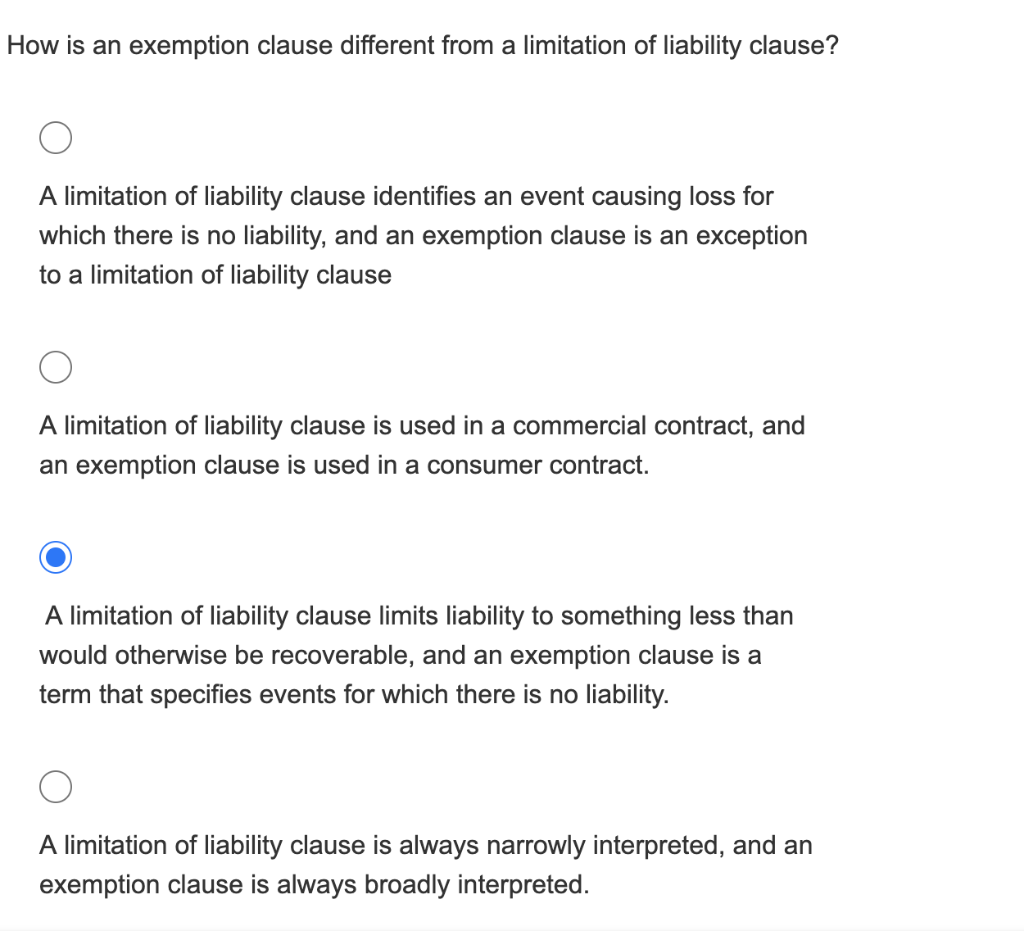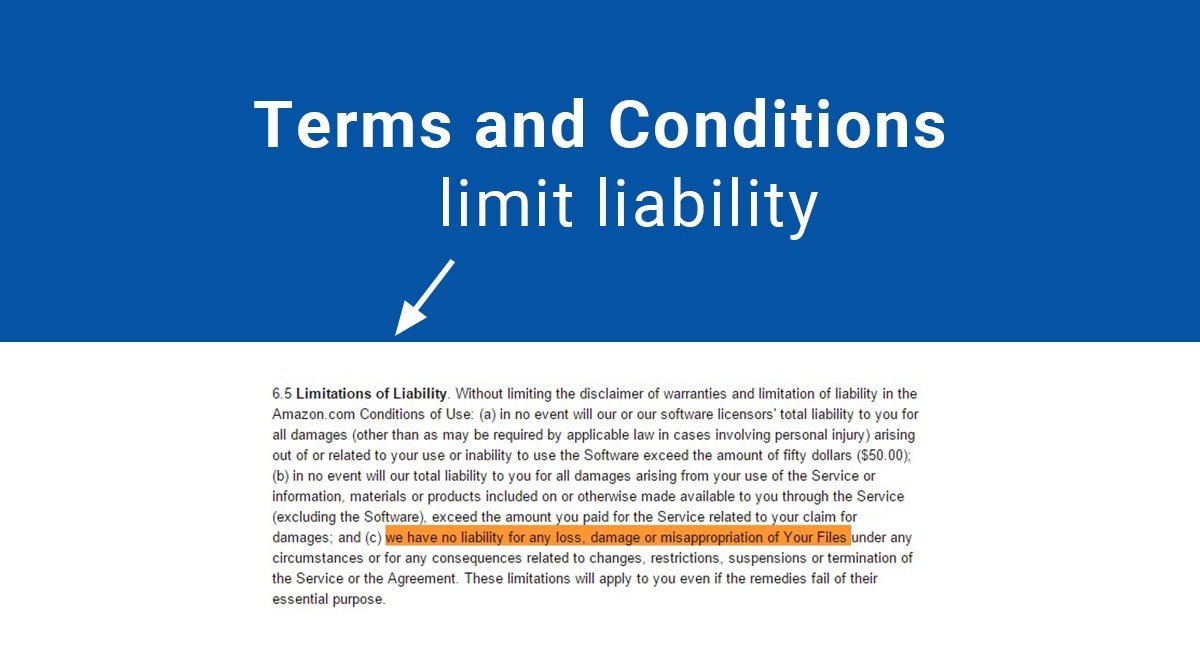The Pro Rata Liability Clause Is Designed To Protect Chapter 2 Insurance Contract. There are three primary forms of other insurance clauses.

Fundamental Principles In Insurance Ppt Video Online Download
The pro rata liability clause is designed to protect the principle of.

. Some losses may be covered by more than 1 insurance policy. The maximum liability of either party to any person firm or corporation whatsoever arising out of or in the connection with any license use or other employment of the Service whether such liability arises from any claim based on breach or repudiation of contract breach of warranty tort or otherwise shall in no case exceed the equivalent of 12 months in license fees applicable at. And escape clauses render a policy inapplicable if other insurance exists.
Pro rata liability applies. Learn About Our EO Coverage. The pro rata liability clause is designed to protect.
Pro rata clauses provide that multiple policies contribute to a loss on a shared basis such as by limits of the respective policies or by equal shares. A pro rata clause in an automobile insurance policy provides that when an insured person has other insurance policies covering the same type of risk the company issuing the policy with the pro rata clause will be liable only for a proportion of the loss represented by the ratio between its policy limit and the total limits of all the available insurance. The physicians surgeons and dentists malpractice form provides coverage for liability arising out of malpractice error or mistakes made in rendering or failing to render professional services.
Ad Zurich Insurance Helps Protect You And Your Lifes Work. The pro rata liability clause is designed to protect the principle of concurrent coverage if more than one policy is in force on the same property at the same time covering the same perils. 119 The endorsement seeks to cope with the problem by limiting the garage liability policy coverage for customers and by reducing the premium the garage owner must pay.
All groups and messages. Each policy pays a percentage of the loss based on the percentage of coverage that policy provides. The pro rata liability clause is designed to protect the principle of.
B Physicians surgeons and dentists malpractice. Each policy will pay 25000 for the loss. The pro rata liability clause is designed to protect the principle of.
Learn vocabulary terms and more with flashcards games and other study tools. Excess clauses render a policy excess to other insurance. A claim will only be paid out on an asset based on the insurable interest that the policy.
Company A carries 13 of the total coverage 20k 40k 60k. Start studying PROPERTY policy provisions and contract law. When a loss happens and the person has more than one policy covering that loss companies that issued the policies share the coverage equitably and not one of them pay the insured the exact amount.
Pro rata clauses keep claims payouts fair in cases where multiple insurers cover the same asset. Pro rata condition of average relates to the proportion of an asset that an insurance policy covers. The pro rata liability clause is designed to protect.
The pro rata liability clause is designed to protect the principle of. If the insured has other insurance against liability covered by this policy the company shall not be liable for a greater proportion of such loss. It is designed for outsiders providing minimum protection when applicable.
For example there are three different policies covering a. In the event of a total loss to the building what would each insurer pay. Pro-Rata The pro-rata clause provides that the insurance carrier will not be liable for more than its pro-rata share of the loss.
The clause typically provides as follows. Insuranceopedia Explains Pro Rata Liability Clause. Pro rata liability clause.
A pro rata clause is a clause in an insurance policy which states that each insurer providing coverage for an asset will pay out claims for that asset in proportion to the coverage percentage for the asset that it is providing. At the same time the endorsement in no way affects the protection of the named insured. The meaning of pro rata clause is a clause in an insurance policy limiting an insurers liability for a loss to a proportionate share in relation to.
Each policy is written for 100000 and each has the pro rata liability other insurance clause. Provision in many property insurance policies that spreads the obligation to pay a claim among various insurers covering that claim in proportion to the insurance each has written on the property. Therefore it is responsible for 13 of the 24000 loss or 8000.
The pro rata liability clause is designed to protect the principle of The two major actions required for a policyholder to comply with the Reinstatement Clause are Life insurance policies will normally pay for losses arising from. Pro Rata Liability means the applicable Shareholder or Partner s Allocable Portion multiplied by the amount of damages or liability caused by such claim or series of related claims and calculated separately for each such claim or series of related claims causing such damage or liability. This clause is meant to prevent a person from profiting from a loss instead of being merely covered for it.
Based on 1 documents. The pro rata liability clause is designed to protect the principle of Per occurrence An insured has a liability policy that sets the amount for all claims that arise from a single incident at 50000.

Definition Of Pro Rata Clause In Insurance

2310 Ch10 V3 The University Of Hong Kong Department Of Statistics And Actuarial Science Stat2310 3610 Risk Management And Insurance Chapter 10 Course Hero

Chapter 6 Analysis Of Insurance Contracts Ppt Download

Solved How Is An Exemption Clause Different From A Chegg Com

Chapter 6 Analysis Of Insurance Contracts A Genda Basic Parts Of An Insurance Contract Deductibles Other Insurance Provisions Ppt Download


0 comments
Post a Comment